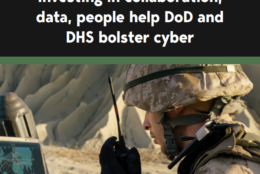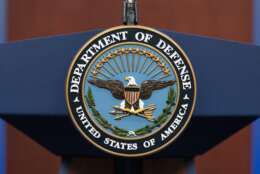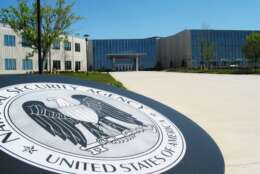Cybersecurity
-
CISA’s new Secure-by-Design, Secure-by-Default principles offer a road map to guide technology providers to a more secure future. By addressing integration, automation and collaboration, agencies can improve the odds our shared technology ecosystem reaches that destination.
September 07, 2023 -
DOJ and the General Services Administration’s inspector general says Verizon’s cyber protections fell short of requirements outlined in the Trusted Internet Connections initiative from October 2017 to August 2021.
September 06, 2023 -
Colby Proffitt, a cybersecurity strategist at Shift5, explains why observability is so important to improving the security and modernizing operational technology.
September 01, 2023 -
Leaders from CISA, the Army Cyber Command and Defense’s JFHQ-DODIN share how they’re investing in all three to help improve cyber capabilities and resiliency for both public and private sector organizations.
August 30, 2023 -
Col. Michael Smith, the director of the Army’s functional management office for zero trust and director of the unified network task force, said an ongoing gap analysis will look at weapons systems and control systems to see where zero trust capabilities can fit in.
August 29, 2023 -
CISA reports that its first ever cybersecurity shared services offering is off to a hot start.
August 25, 2023 -
Vulnerability disclosure has proliferated across federal agencies in recent years. A new House bill would make them mandatory for contractors, too.
August 24, 2023 -
During this webinar, top government information security executives and industry experts will reflect on their accomplishments along with the people and technology that made these programs so successful.
August 23, 2023 -
CMMC 2.0 is bringing compliance within reach of a wider range of DoD contractors and partner organizations. But success requires those who handle CUI to understand both the changes CMMC 2.0 is bringing, and how stronger encryption and other data protection measures can be deployed to help meet these new CMMC 2.0 compliance requirements.
August 22, 2023 -
The IRS has a detailed plan for achieving a state of zero trust on its information technology networks, which is something all agencies are under obligation to do for cybersecurity.
August 21, 2023 -
The Federal Communications Commission has established a task force to deal with privacy and data protection, noting what it calls the era of always-on connectivity.
August 17, 2023 -
The Cyber Safety Review Board will investigate what agencies and industry can do to "strengthen identity management and authentication in the cloud.”
August 16, 2023 -
Federal CISO Chris DeRusha says using weak forms of identity authentication is like "driving without seatbelts."
August 15, 2023 -
Melissa Vice, the director of the Department of Defense’s Vulnerability Disclosure Program, said the 12-month voluntary pilot with defense contractors found vendors faces similar challenges as the department in securing their networks.
August 14, 2023 -
The NSA's top official says the highly secretive agency is looking at how much work it can do outside of a SCIF.
August 10, 2023













